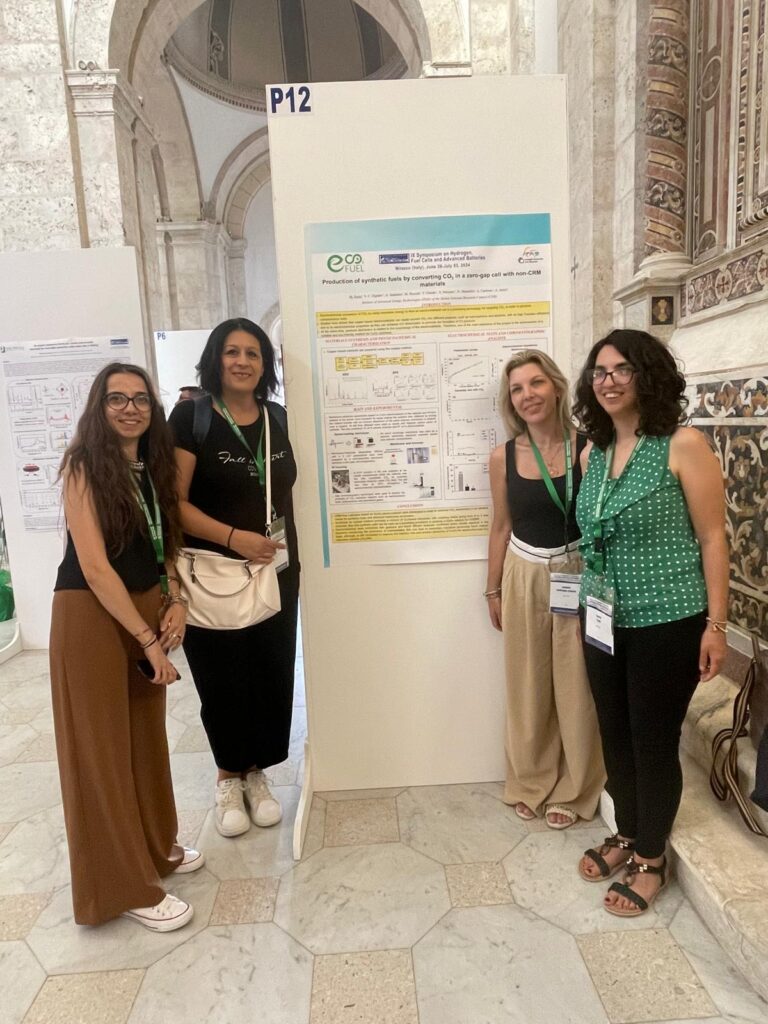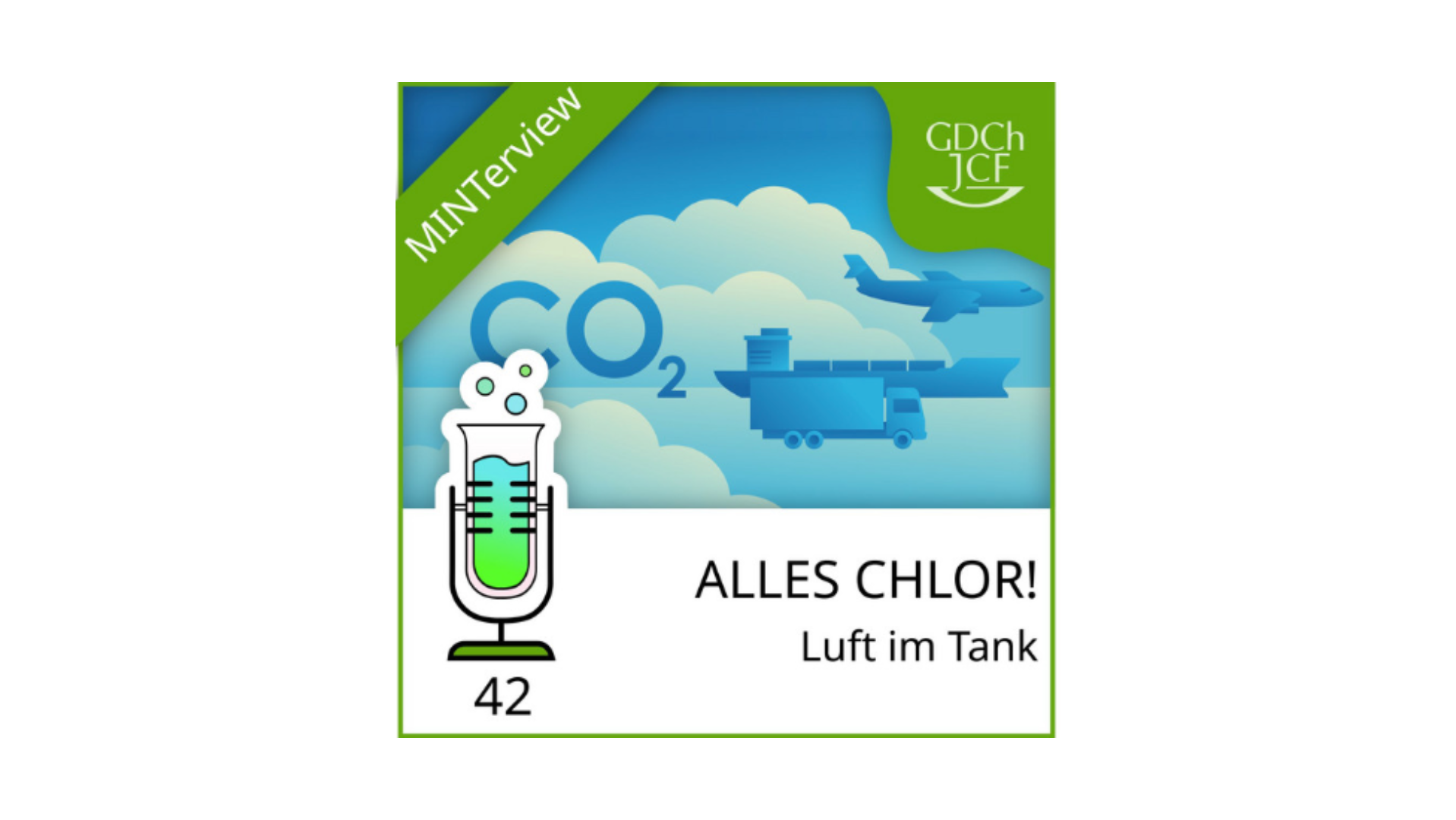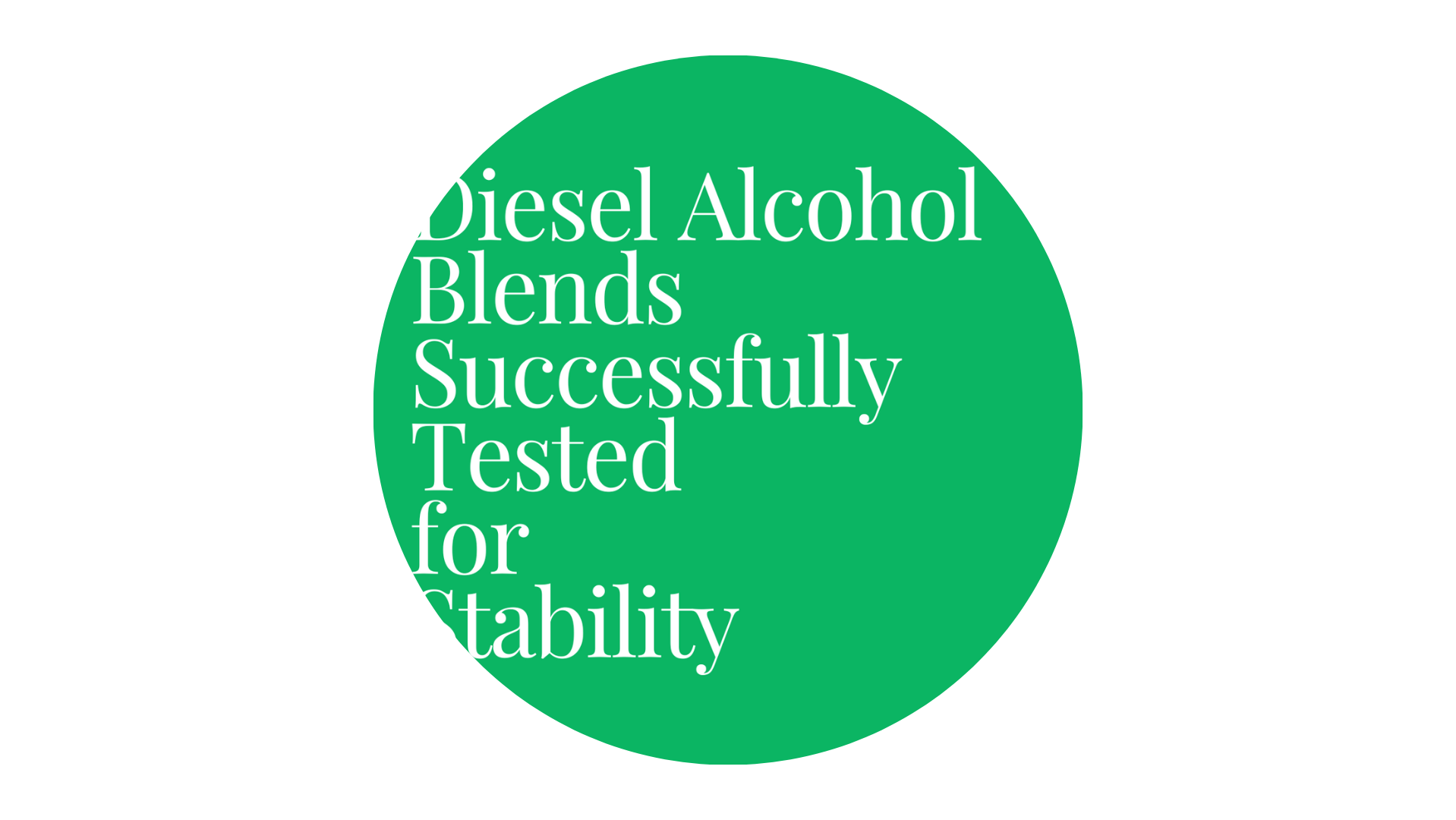Sabrina Campagna Zignani’s Poster Presentation Showcases Innovative Use of Non-CRM Materials for Synthetic Fuel Production
At the 9th Symposium on Hydrogen, Fuel Cells, and Advanced Batteries, held in the vibrant setting of Hyceltec 2024, the National Research Council of Italy (CNR) made waves with a groundbreaking poster presentation by Sabrina Campagna Zignani. The presentation focused on an innovative approach to the electrochemical conversion of carbon dioxide (CO2) into valuable synthetic fuels using non-critical raw materials (non-CRM).

A New Horizon in Synthetic Fuel Production
Zignani’s research delves into the current challenges and advancements in CO2 conversion technologies. Traditionally, copper-based materials have been the catalysts of choice due to their effectiveness in promoting this reaction. However, Zignani’s work introduces a novel copper oxide electrocatalyst combined with silver (CuO 70% Ag 30%), synthesized via the oxalate method and tested in a flow cell system.
Promising Results in Electrochemical Experiments
The electrochemical experiments, conducted at room temperature across varying potentials (-1.05V to -0.75V vs. RHE) in the presence of 0.1 M KHCO3, yielded impressive results. Gas and liquid chromatographic analysis revealed that the CuOx-based electrodes demonstrated a 25% selectivity for formic acid (HCOOH) at -0.55V, while ethylene (C2H4) achieved a 20% selectivity at -1.05V over CuOx.
Diverse Product Range from CO2 Conversion
The study highlighted the formation of various valuable chemicals including ethylene, ethanol, and propanol at more positive potentials. Additionally, products such as carbon monoxide (CO), acetate (CH3COO), ethylene glycol (C2H6O2), propionaldehyde (C3H6O), glycoaldehyde (C2H4O2), and glyoxal (C2H2O2) were detected, showcasing the versatility and potential of this catalytic system.
A Step Towards Sustainable Energy Solutions
The findings presented by Sabrina Campagna Zignani emphasize the promising future of synthetic fuel production from CO2 in alkaline environments at room temperature. This research marks a significant step forward in the quest for sustainable energy solutions, reducing dependency on critical raw materials and advancing the field of green chemistry.
For more details on the symposium and the innovative research presented, visit Hyceltec 2024.






